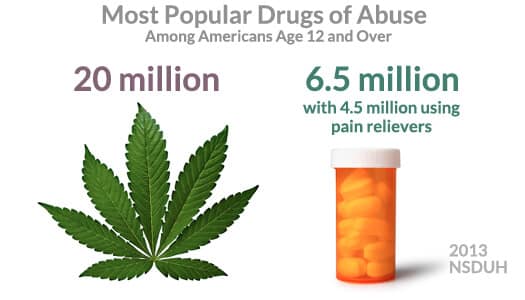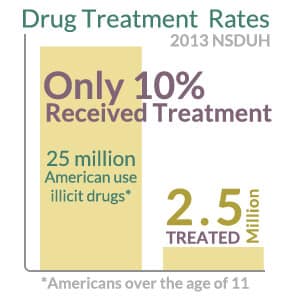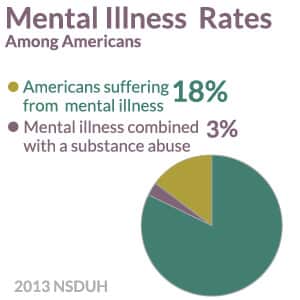To make informed decisions about drug policy and how it affects the country, we should carefully consider the statistics around illicit substances.
How effective is drug treatment — and are the people who need treatment really getting the help they need? A lot of research has been done by government agencies, academic institutions, and private organizations on the rates of success among Americans enrolled insubstance abuse treatment. In addition, many drug treatment centers track the progress of their past and present clients. One of the most authoritative sources on treatment statistics in the US is theNational Survey on Drug Use and Health(NSDUH), an annual nationwide survey that tracks trends in alcohol use, drug abuse, and mental health among Americans. According to the2013 NSDUH:
- Nearly 25 million Americans over the age of 11 reported that they were currently using illicit drugs.
- Approximately 2.5 million Americans who needed treatment fordrug or alcohol addictiongot the specialized help they needed.
- Over 18 percent of Americans over age 17 had a form of mental illness.
- Over 10 percent of American teens struggled with depression.
- Over 3 percent of American adults had a form of mental illness combined with a substance abuse disorder.
What are the most commonly used drugs in the United States? In 2013, marijuana was by far the most widely abused drug in the US, with nearly 20 million Americans age 12 and older reporting use. Prescription drugs came in second, with close to 6.5 million Americans reporting nonmedical use of medications, and 4.5 million reporting the nonmedical use of prescription pain relievers, according to the NSDUH.



















